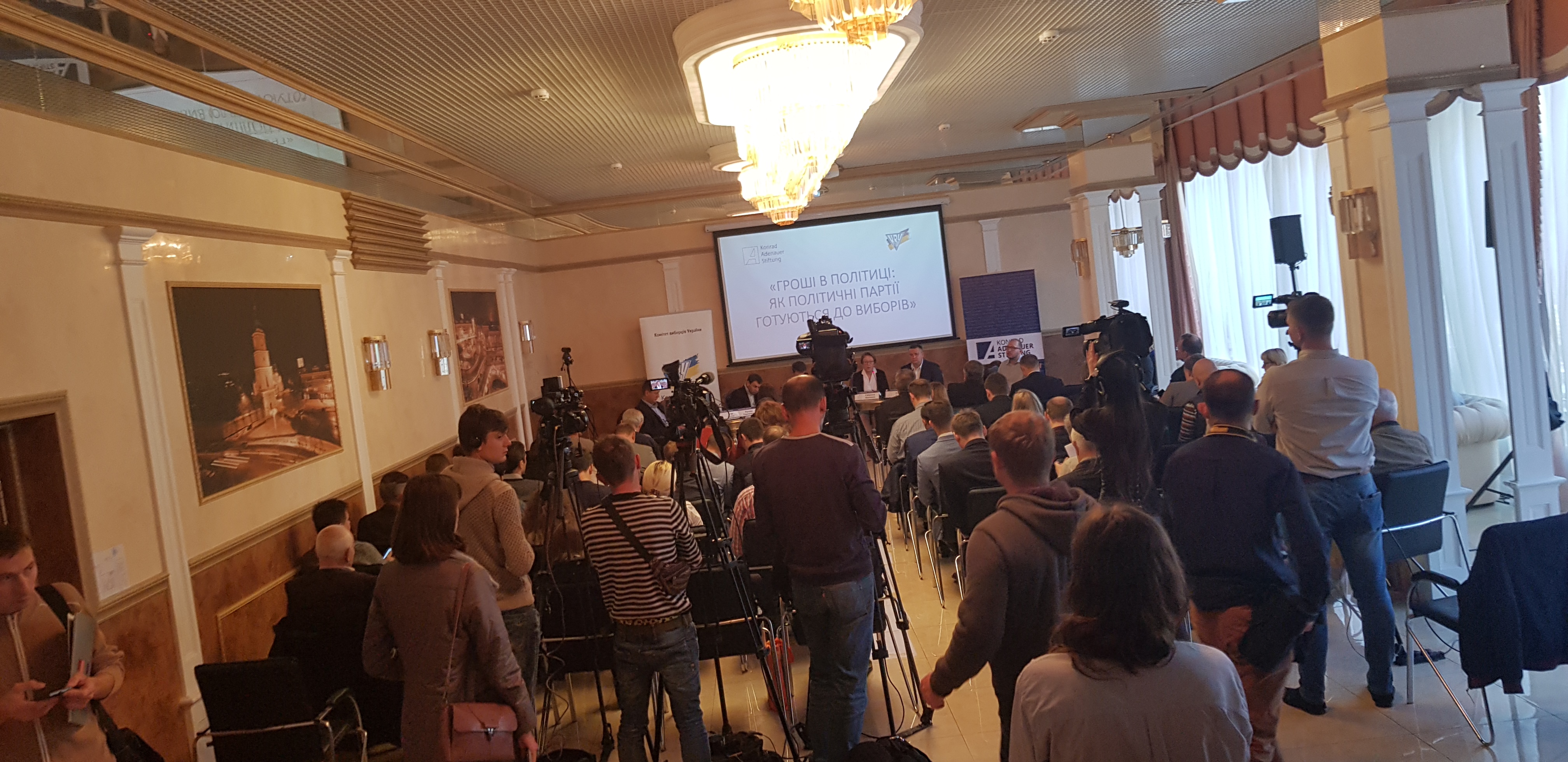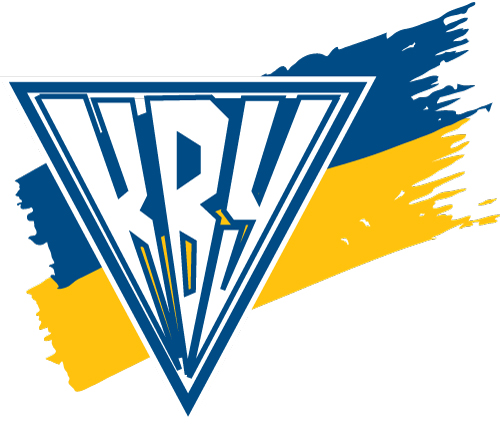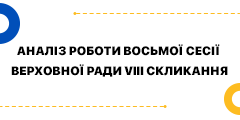An international conference: "Money in politics: how political parties are preparing for elections." was held on October 8, 2018, in Kyiv. The event was organized by Committee of voters of Ukraine in cooperation and with the support of the Konrad-Adenauer-Stiftung Office in Ukraine.
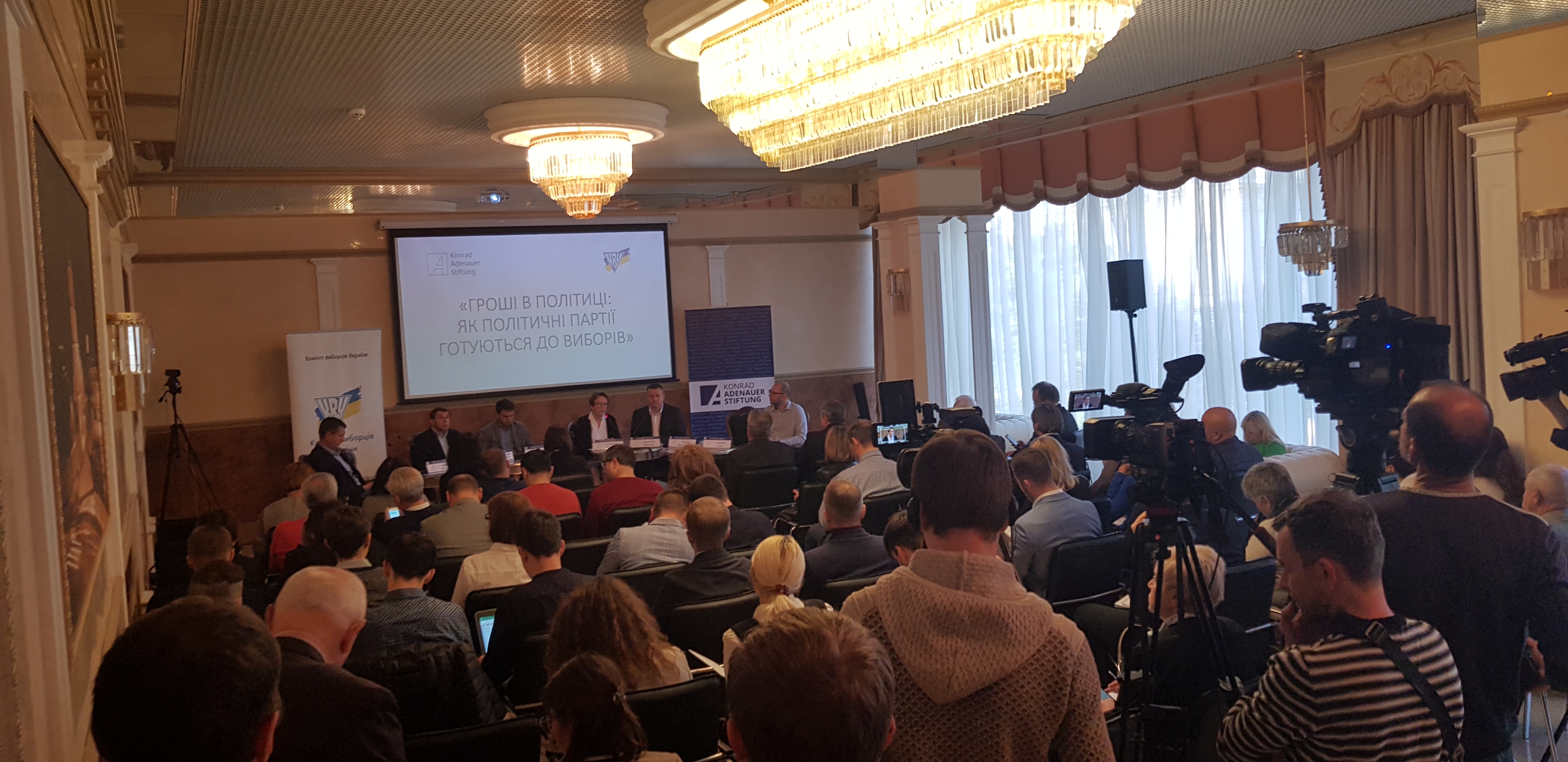
The head of the Committee of voters of Ukraine Oleksii Koshel was a moderator of the event. He made welcome speech and presented some findings of CVU on monitoring of party finances.
Namely, he pointed out an abnormally high number of potential candidates in the presidential elections in Ukraine: it is 28 people. With the fact that the official campaign will begin only on December 31st. Mr. Koshel also drew attention to the fact that the elections in Ukraine are traditionally expensive. The main reason for this is significant expenditures on political advertising by political actors. According to estimations of the CVU during the last few months, the parties spent only on placing outdoor advertising approximately half a billion UAH. At the same time it was officially spent only 10 million UAH.
Gabriel Baumann, Head of Konrad-Adenauer-Stiftung Office in Ukraine. Ms. Baumann emphasized on importance of monitoring party finances for Ukraine. In particular, he pointed out that a large part of experts are considering Ukrainian parties exclusively in the context of political projects, which is not correct. According to Ms. Baumann, in recent years, more meaningful models of political parties have been formed in Ukraine, whose programs ideologically differ from previous. The parties differ in their attitude to the issue of Ukraine's accession to NATO and the EU, the settlement of the situation in the East of Ukraine, the promotion of certain reforms and the issue of the Crimean peninsula.
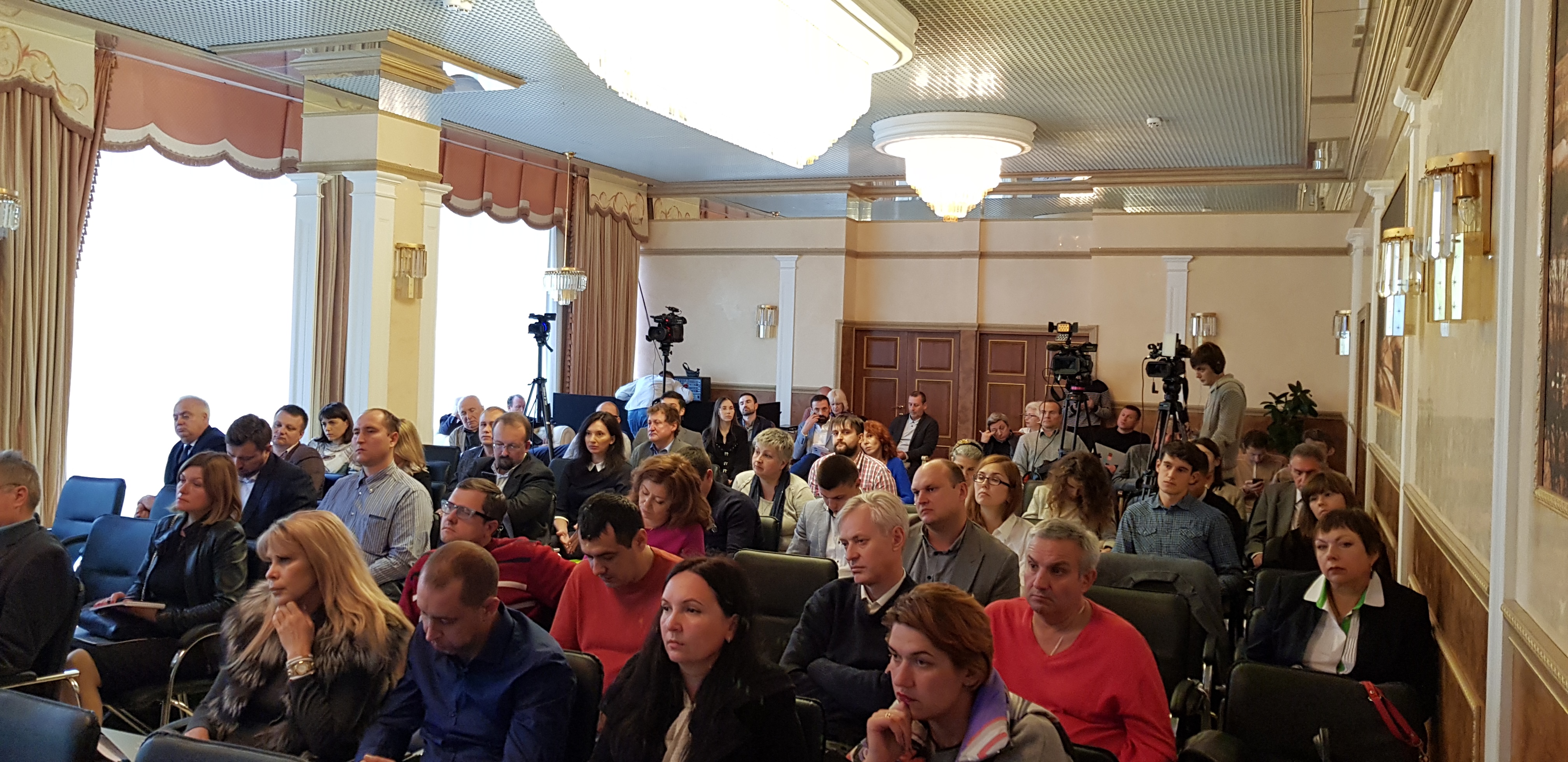
CVU analyst Denis Rybachok presented the main findings regarding existing problems in the field of party building in Ukraine. Thus, it was stressed that 80% of Ukrainian parties are de facto fictitious structures that exist only on paper. About 100 Ukrainian parties out of 353 do not submit the financial statements to the NAPC, and another 200 submit blank reports without any expenditures. Also, these parties do not participate in the elections. Therefore, in reality there are about 50 political forces operating in Ukraine. In addition, the problem that remains is a high level of shadow party life. Thus, 79% of Ukrainian parties officially do not have any employees, and 47% do not have any local branches with the status of a legal entity. As for the expenses of the parties, the first place occupies political advertising. At the same time, parliamentary parties pay for such advertising from public funds received by them in the framework of state financing of statutory activities.
The MP of Ukraine Ruslan Sidorovich pointed out that it would be possible to completely annihilate shadow party life only after we take Ukraine finances out of the shadows in general. Without this step, no party reform will succeed. Mr Sidorovich also stressed that the problem of shadowing party funds is linked with the significant expenditures on political advertising. For comparison: the number of relevant advertising in the European countries is minimal. According to Mr Sidorovich, political advertising allows candidates to avoid direct contact with voters and influence their consciousness through advertising. The "Samopomich" Faction, which he present, stands either for the total prohibition of political advertising, or bringing it to a minimum that should facilitate the direct contact of candidates with citizens.
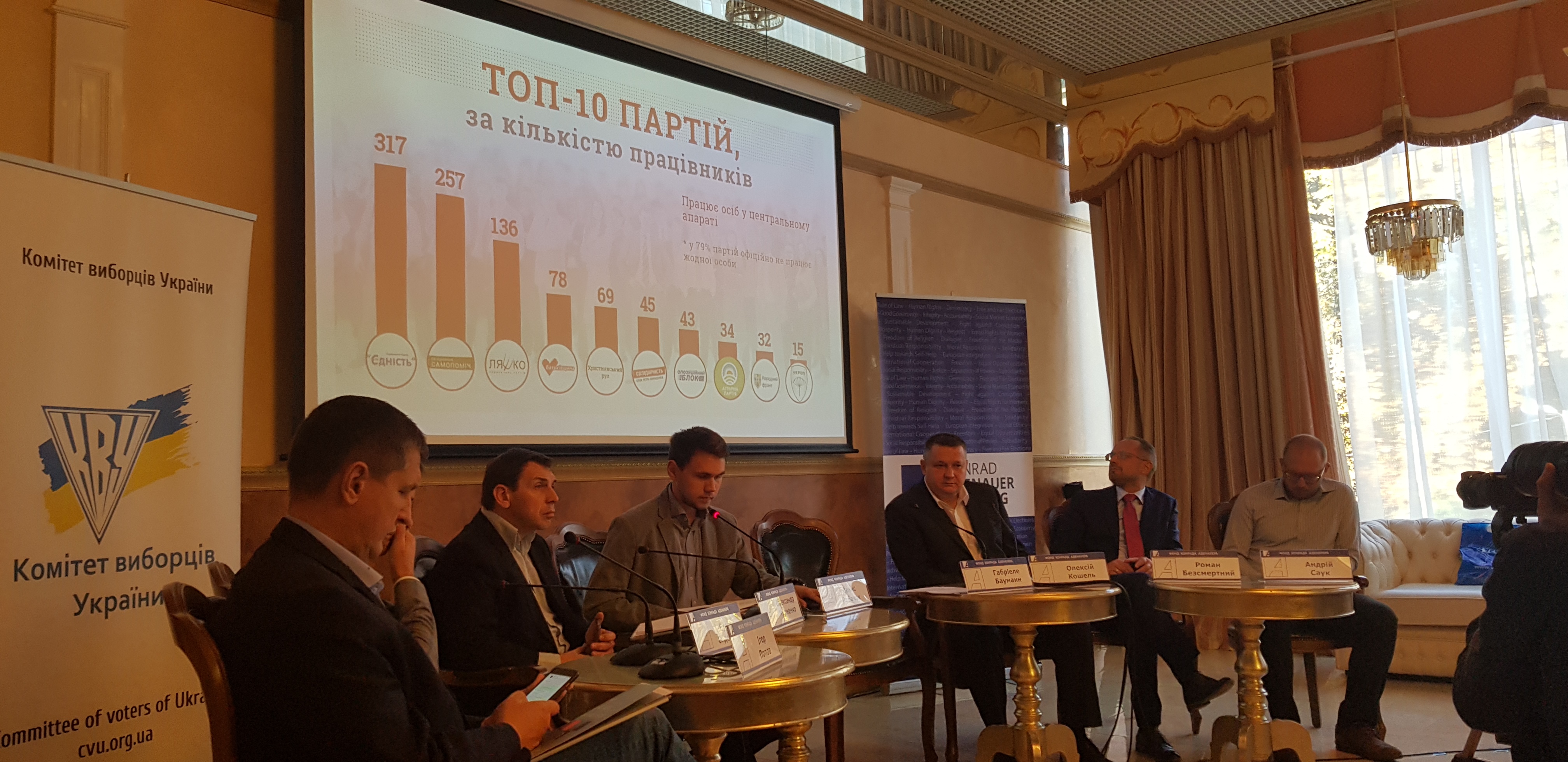
Ihor Popov, MP of Ukraine, noted that the law on state financing of parties in terms of control really works, but in terms of state funding of parties he completely failed. Parties perceive state funding as an additional bonus and spend money on those areas where it is possible: first, to simplify a payment; secondly, to simplify reporting to the NACC; thirdly, not to spend money on taxes. Mr Popov also noted that the budgets of the Ukrainian elections are extremely costly, including hundreds of millions of dollars. At the same time, it's not possible to completely ban advertising on TV, so it is worth at least increasing the duration of the relevant videos, which will increase quality of content. As for the electoral reform, Mr Popov emphasized the importance of elimination of the majoritarian component in the parliamentary elections. At the same time, he doubt that such initiatives will receive support in the Verkhovna Rada, so at least it is worth trying to modify a majoritarian component somehow, introducing two-round system.
Olexnadr Chernenko, MP of Ukraine, stressed that at the working group on discussing of the draft Election Code, policy makers agreed to ban outdoor advertising and certain restrictions on advertising in the media and television. In this case, it is necessary not only to formally increase the length of the video (for example, up to 3 minutes), but we should talk about the requirements for its content. Speaking about the funds in the elections, Mr Chernenko raised the issue of remuneration of work of election commission members. Today, these individuals receive from the state virtually a penny, but they bear considerable responsibility. Accordingly, they are financed in a shadow by the parties themselves, which at least partially allows solving the problem, albeit not in a lawful way. Mr Chernenko was skeptical about the possibility of adopting the electoral code in the near future. In his opinion, this issue may not find enough support in parliament.
Roman Bezsmertnyi, a potential candidate for the Presidency of Ukraine, offered to use the two-round majority voting system in the elections to the Verkhovna Rada, with the mandatory nomination of candidates from political parties. In his opinion, this system enables clever, experienced and acknowledged persons to return to the political system of Ukraine. He also suggested that the issue of party financing to be analyze in a broader context, namely, through an analysis of the political system of Ukraine. In his opinion, it is important to understand what the purpose of the electoral or party reform is and only then develop the mechanisms for its implementation. Mr Bezsmertnyi noted that the main goal of the party is communication with the citizens and any party reforms should be based with regards to it. At the same time, Ukraine should generally change its legal approaches to resolve many issues that, according to Mr Bezsmertnyi, require modernization in the form of the re-launch of the state.
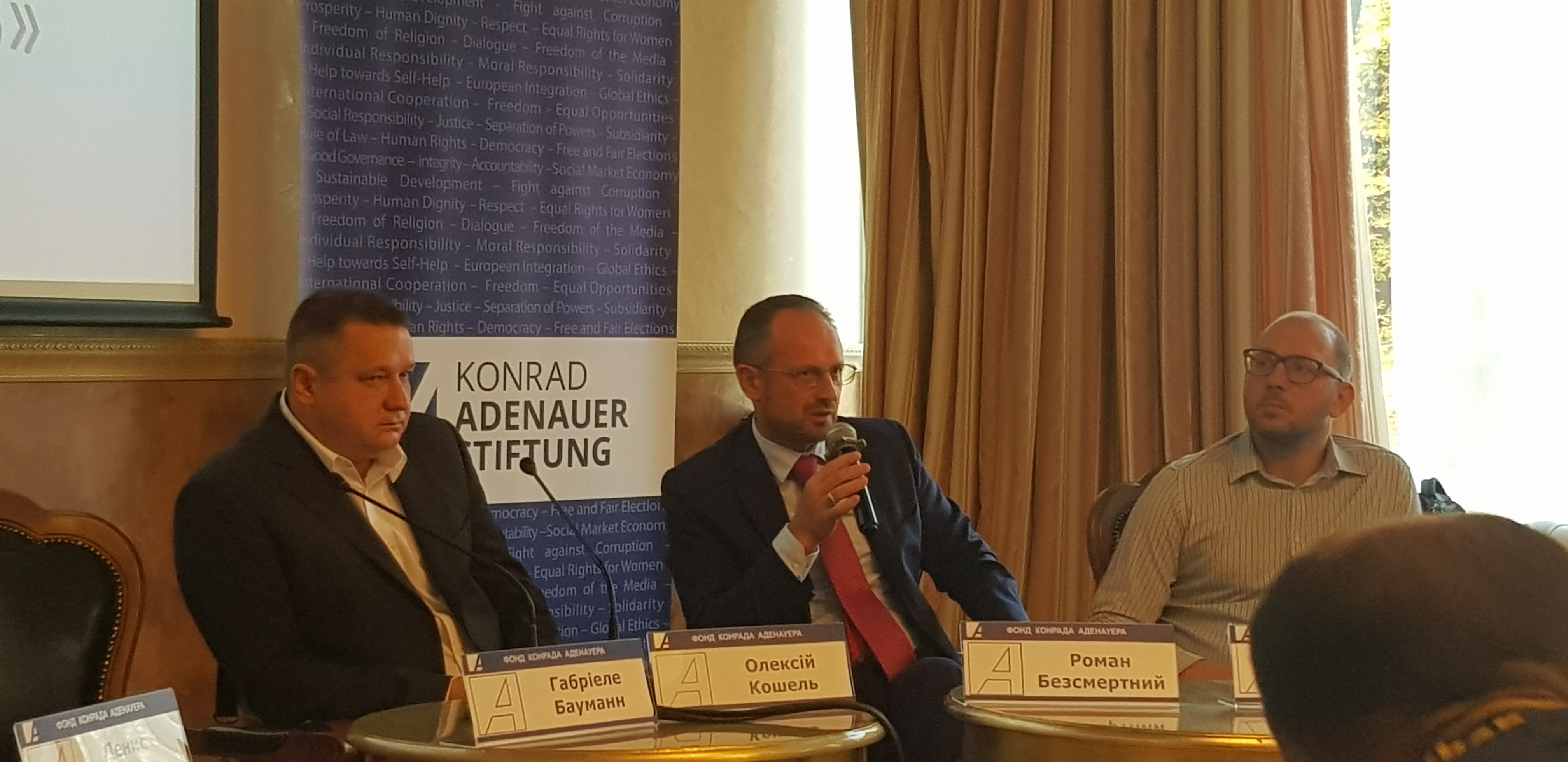
Andriy Sauk, co-chairman of the Democratic Alliance Political Party, said that from the very beginning Demelyans was based on party transparency and honesty, and therefore pointed on realistic figures in its reports. At the same time, parties should not relay to exist solely due to membership fee, because this model in Ukraine does not work. According to Mr Sauk, the main problem in Ukraine is impunity that undermines rather high-quality Ukrainian legislation. As for the money deposit, Mr. Sauk did not support the idea of increasing it, as it would not solve the issue of technical candidates.
The questions of international party building experience were highlighted by Gabriele Baumann and Morton Enberg, Head of the Council of Europe Office in Ukraine.
Ms Baumann emphasized that the issue of electoral law is one of the main issues of democracy. She stressed that it is important to adhere to the mechanisms that ensure the universal participation of citizens in the elections. One of them is mail voting, which is currently actively used in Germany. At the same time, in Germany, as in Ukraine, the issue of electoral reform is quite actively discussed. In particular, the reduction of the number of constituencies, direct mandates, the electoral threshold (now 5%), as well as changes the system of first and second votes, which is an element of the country's electoral system. In the elections to the Bundestag in 2013, the vote of almost 7 million voters were not taken into account as these parties did not overcome the barrier. In addition, on the agenda is the issue of introducing compulsory participation in elections, as well as the introduction of electoral computers. In general, in spite of some similarities between Ukraine and Germany, in Germany in the elections, first of all, we speak about party-political aspect, and not about influential people who really stand behind the parties, as is often the case in Ukraine.
Morton Enberg noted that the Council of Europe Office in Ukraine has several key areas of work, including electoral law, public broadcasting, decentralization, settlers, legal reforms, prosecution reform, and violence against women. One of the important issues of the election field is the issue of equal access to politics at all levels, which, among other things, is connected with the activity of public broadcasting in Ukraine. The purpose of public broadcasting is to provide voters with honest and impartial information without violating the principle of equality of candidates. Mr. Enberg also expressed his opinion about the change of the electoral system in Ukraine for the elections to the Verkhovna Rada. He recalled that the Venice Commission recommended that Ukraine switch to the electoral system with open lists, which seems to be the most optimal at the present stage.
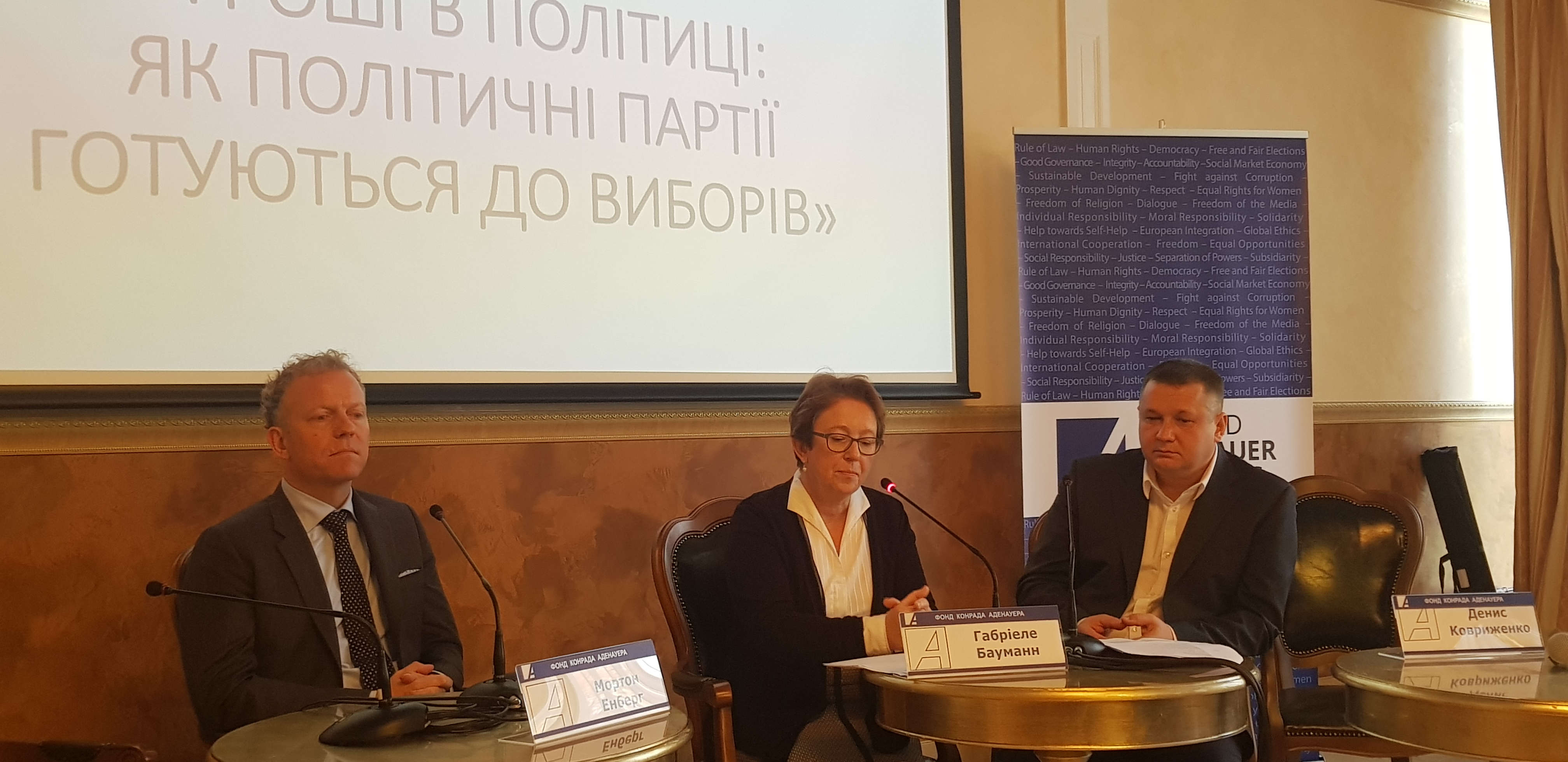
Volodymyr Fesenko, Chairman of the Research Center for Political Studies “PENTA”, noted that, under the current conditions in the presidential election the role of parties is important, but not decisive. For example, Mr Poroshenko relied in 2014 in the election campaign not on the party but on his campaign office. While Yulia Tymoshenko relies on the ramified system of the party Batkivshchyna. With powerful advertising, it is possible to conduct an effective short election campaign and this is also one of the deformations of our political process. This deformation could be clearly seen in the 2014 elections, when some political forces launched the campaign shortly before the polling day. As for the 2019 elections, they will become for many parties a kind of springboard ahead of the parliamentary elections.
Victor Taran, Chairman of the Center “Eidos”, remarked that starting from September 2016, 1,200 billion UAH was spent on financing the parties from the state budget. According to the financial statements, the party now on 91% exist due to state financing. In Europe, it is 60-70%. The study of the Eidos Center for the period from September 2016 to September 2018 showed that 22% of the expenditure of the parties is spent on propaganda, 20.6% on the maintenance of cells, and 17% on wages. Also, politicians now widely use hidden political advertising, the concept of which has not yet been determined by the NAPC. Mr Taran urged colleagues to jointly develop changes to the legislation on political parties. Because now the parties are already running an election campaign for money from state budget, and after the elections, the winer-parties will also receive monetary compensation for campaign expenditures.
.jpg)
Dmytro Kalmykov, an expert on criminal law and corruption issues at the Center for Political and Legal Reforms, urged politicians to fully flagged consideration of the issues of improving the legislation on political parties. According to his opinion, with each subsequent election, the proportion of spending on TV advertising decreases. At the same time, the share of expenses on the Internet and social networks increases. Therefore, a direct ban on advertising will only increase jeansa (hidden advertising), and other share of money will go on add in social network, Internet resources. As for state funding of parties, it can not solve the problems for 100%, but it is an important and necessary step, which is actively used in the world. As to the legislation on political parties, a lot of changes should be made here. In particular, regarding the prosecution of those who breach the law, clarification of the notion “statutory activities”, requirements for party audit, separation of party activities and elections expenses. Also there should be made qualitative amendments regarding activities of the National Police and the courts.
Igor Feshchenko, an analyst of CHESNO, believes that the election campaign started 1.5-2 years ago. An example is the party Osnova, Nalyvaychenko party Justice and the party Za zhytia, which conducts activities on TV and places whiteboards on advertising either TV programs or party, but there is no information about expenses in the financial statements, but the rating of the party grows up. Officially, the parties have already spent several hundred million USD on this election campaign. He informed that the one month of the advertising company the New Course of the Batkivshchyna party costs 22 million UAH. Mr Poroshenko campaign in TV costs 10 million UAH. Candidates from the party and self-nominated are now not on equal terms: the first must report on the origin and spending of funds, while others do not, since the election campaign has not officially begun. Even more money has already been spent on media support. A week ago, Rinat Akhmetov additionally financed his media on UAH 70 million.
.jpg)
Oleksii Sydorchuk, IFES Project Coordinator, believe that the new law on political parties had already made significant changes: due to a new mechanism of transparency, NGOs could monitor the activities and funding of political parties. Often, the media resonance is a reason that can push political actors to change behavior and such examples already exist. Mr Sydorchuk also pointed out weaknesses in the part of legislation that needs to be changed, in particular, in terms of party financing and financing of election campaigns. He also mentioned the gaps in legislation regarding the functioning of controlling bodies, such as the NAPC and the CEC.
Volodymyr Tsybulko, a political expert, expressed the opinion that the majority of actors who have already joined the electoral process are not fighting for the presidential portfolio, but for the right to participate in the platform to create a ruling coalition in the parliament. The result of the presidential race will be completed by the formation of a political class as such and the formation of party and competent filters, so that into the parliament does not fall the “casual” people. Also, according to the expert, opinion polls include such potential candidates for the post of President of Ukraine as Mr Zelensky and Mr Vakarchuk in order to test the reaction of society to new and inexperienced candidates.
